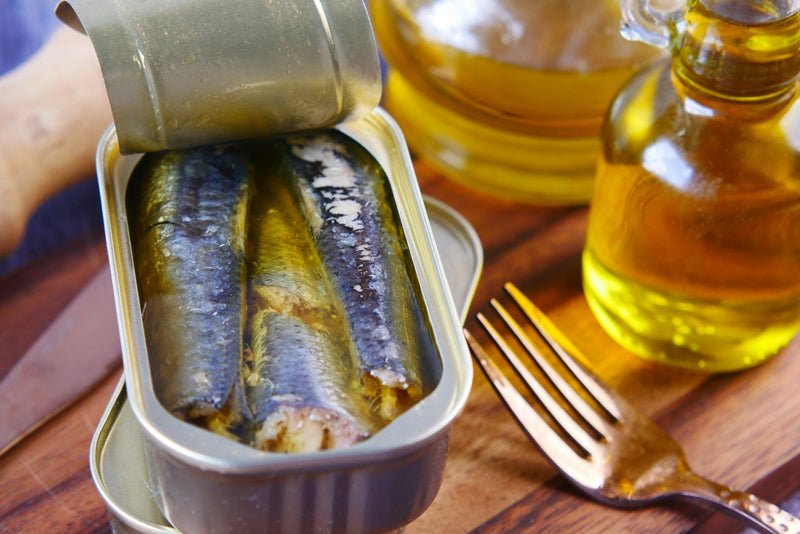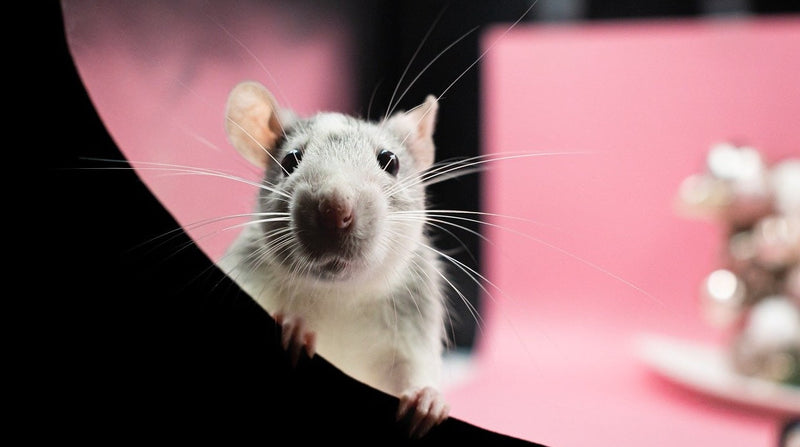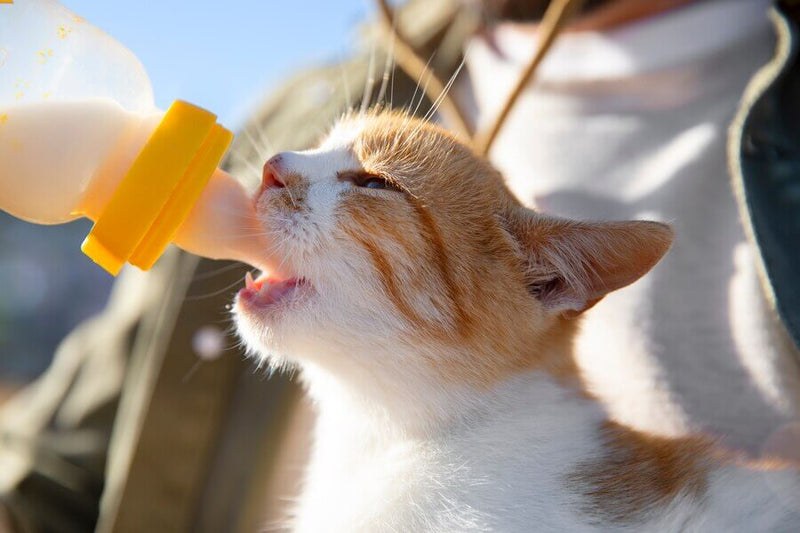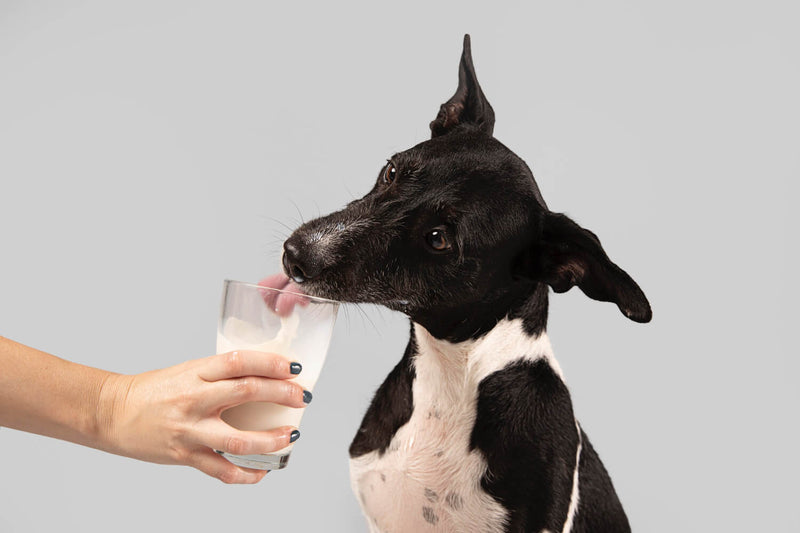
Welcome to Gritty Pet Co.
Your Canadian, specialty Pet Health & Wellness destination. 🇨🇦

Vet Reviewed & Approved
Dr. Ibrar A. is our veterinarian and a key member of our team. ✅
Olive oil for cats, is not just a kitchen staple; it's a potent supplement that can significantly enhance your feline friend's health and wellness. Wondering how olive oil benefits cats? This natural elixir, rich in antioxidants like vitamin E, chlorophyll, and polyphenols, is a game-changer for improving skin and coat health, aiding digestion, and boosting the immune system.
For pet owners seeking a holistic approach to their pet's health, incorporating olive oil cats into their diet can lead to a shinier coat, better digestive health, and an overall happier cat.
This article dives into the practical uses of olive oil for cats, offering advice on moderation, application, and the remarkable health benefits that make olive oil a wise choice for feline wellness.
Key Takeaways
Olive Oil as a Nutritional Supplement: Olive oil can be a beneficial addition to your cat's diet when used in moderation. It's packed with antioxidants like vitamin E, chlorophyll, and polyphenols, which can boost the immune system and improve skin and coat health. However, it's crucial to consult with your vet before supplementing, as olive oil is high in calories.
Moderation and Veterinary Guidance: While olive oil offers benefits such as aiding digestion, enhancing coat shine, and possibly extending lifespan (1), it must be administered judiciously to avoid weight gain and digestive issues. Start with a small amount, such as a quarter teaspoon for a cat weighing around 9 pounds, and never use it as a substitute for a balanced diet. Always seek a veterinarian's advice to determine the appropriate dosage for your pet.
Application for Common Cat Issues: Besides dietary benefits, olive oil can serve as a natural remedy for matted fur, hairballs, and ear mites, enhancing your cat's grooming routine. Applying a small amount of olive oil directly to problem areas or incorporating it into their diet can provide relief. However, for any external application, especially for ear mites, consult your vet.
Olive Oil for Cats: Our Comprehensive Guide

The Benefits of Olive Oil for Cats
Olive oil's health benefits for humans are well-documented, but how does it fare for our feline companions? Olive oil can offer several advantages when incorporated into a cat's diet in moderation.
- Skin and Coat Health: Olive oil is praised for its ability to promote a shiny and vibrant coat, thanks to its high antioxidant content (2). These antioxidants, including vitamin E, chlorophyll, and polyphenols, nourish the skin and fur from within, potentially improving the appearance and health of cats across different breeds, especially those prone to dry skin or lacklustre coats.
- Digestive Aid: Its lubricating properties can ease the passage of hairballs and relieve constipation, making it a valuable supplement for breeds with long fur. Incorporating a small amount of olive oil into your cat's diet can stimulate the gastrocolic reflex, aiding bowel movements (3). However, it's important to use it sparingly to avoid the laxative effect leading to diarrhea.
- Antioxidant Benefits: The antioxidants in olive oil not only support skin and coat health but also contribute to overall immune system function. This can be particularly beneficial for older cats, helping to mitigate the effects of aging and potentially increasing their lifespan.
- Heart Health: The monounsaturated fats in olive oil are known for their heart-healthy benefits (4). While all cats require a diet primarily composed of animal-based proteins, the inclusion of small amounts of olive oil can contribute to a balanced diet, supporting cardiovascular health without overloading calories.
- Mite and Fur Management: The topical application of olive oil can aid in managing matted fur and ear mites (5), providing relief and improving hygiene. It's an effective natural remedy for these common issues, though it should be applied with care to avoid any adverse reactions.

Actionable Advice:
- Moderation is Key: Due to its high caloric content, olive oil should be administered in moderation. A general guideline is a quarter teaspoon for a cat weighing around 9 pounds, adjusted according to your vet's recommendation.
- Consult Your Veterinarian: Before introducing olive oil or any supplement to your cat's diet, consult with a veterinarian. They can provide tailored advice based on your cat's specific health conditions and dietary needs.
- Quality Matters: Opt for high-quality, extra-virgin olive oil, which is less processed and free of harmful additives. This ensures your cat receives the maximum benefits without exposure to potential toxins.
- Dietary Balance: While olive oil can offer health benefits, it should not replace a balanced diet. Ensure your cat's diet remains rich in animal-based proteins and nutrients essential for their carnivorous needs.
- Observe Your Cat's Reaction: Monitor your cat for any adverse reactions when introducing olive oil to their diet. Discontinue use and consult your vet if you notice symptoms like diarrhea, vomiting, or signs of allergies.
FAQ
1. Is Olive Oil Safe for Cats?
Olive oil is considered safe for cats when used in moderation. It's non-toxic and can be a beneficial supplement in their diet, offering a range of health benefits including acting as a powerful antioxidant and aiding in constipation relief. However, it's crucial to consult your vet before supplementing, especially for cats with ongoing health conditions.
2. What Are the Benefits of Olive Oil for Cats?
Olive oil can offer several health benefits for cats, such as improving the shine and softness of their coat, supporting muscle functionality, and aiding in the passing of hairballs. It also contains monounsaturated fats that can boost a cat's metabolism and help with weight management.
3. How Much Olive Oil Should I Feed My Cat?
Moderation is key when feeding olive oil to your cat. A general recommendation is no more than a teaspoon every three days for conditioning, but this can vary based on the cat's size and health condition. Always start with small amounts to see how your cat reacts and adjust accordingly.
4. How Can I Safely Introduce Olive Oil to My Cat's Diet?
Introduce olive oil to your cat's diet gradually by mixing it into their food. Start with a small amount, like a quarter of a teaspoon, and observe for any adverse reactions such as diarrhea or vomiting. It's also vital to choose high-quality, extra-virgin olive oil to ensure your cat receives the best benefits without negative side effects.
5. Are There Any Risks or Side Effects of Feeding Olive Oil to Cats?
While olive oil can be beneficial, excessive consumption can lead to health complications such as diarrhea, vomiting, and weight gain. The high fat content may also contribute to the development of pancreatitis. Always consult with a vet to determine the appropriate amount for your cat and monitor for any potential side effects.
Top 3 YouTube Videos on How Olive Oil Can Benefit Cats
1. Using Olive Oil to Get Rid of Matted Fur on a Cat: Cat Care Tips
Why Watch: This video demonstrates a practical use of olive oil in cat grooming, specifically in removing matted fur. It's a must-watch for cat owners looking for natural grooming solutions.
2. Can I put olive oil in my cats food?
Why Watch: Dive into the nutritional benefits of adding olive oil to your cat's diet. The video covers how a few drops of olive oil can aid digestion and promote a healthier coat.
3. How to Get Rid of Ear Mites in Cats with Olive Oil?
Why Watch: Ear mites can be a pesky problem for cats. This video provides a step-by-step guide on using olive oil as a natural remedy to combat ear mites, offering a safe and effective solution.
External Links for Further Reading
Conclusion
Olive oil can be a beneficial supplement for cats, offering advantages for skin and coat health, digestion, and immune support. However, it's important to use it in moderation and under the guidance of a veterinarian. By considering your cat's breed, health status, and dietary needs, you can safely incorporate olive oil into their diet for potential health benefits.
Remember, while olive oil offers several health benefits, it should not replace a balanced and nutritious diet tailored to your cat's specific needs. Always prioritize high-quality cat food and consult with your veterinarian before making any dietary changes.
References
- 1. Orey, C. (2015). The Healing Powers Of Olive Oil:: A Complete Guide To Nature's Liquid Gold. Kensington Publishing Corporation.
- 2. Alnemer, F., Aljohani, R., Alajlan, A., Aljohani, M., Alozaib, I., Masuadi, E., ... & Al Jasser, M. I. (2022). The use of olive oil for skin health in a Saudi population: A cross-sectional study. Dermatology Reports, 14(1).
- 3. Alemán-Jiménez, C., Domínguez-Perles, R., Gallego-Gómez, J. I., Simonelli-Muñoz, A., Moine, E., Durand, T., ... & Medina, S. (2021). Fatty acid hydroxytyrosyl esters of olive oils are bioaccessible according to simulated in vitro gastrointestinal digestion: unraveling the role of digestive enzymes on their stability. Journal of Agricultural and Food Chemistry, 69(47), 14165-14175.
- 4. Covas, M. I., Konstantinidou, V., & Fitó, M. (2009). Olive oil and cardiovascular health. Journal of cardiovascular pharmacology, 54(6), 477-482.
- 5. YİPEL, F. A., Acar, A., & Yipel, M. (2016). Effect of some essential oils (Allium sativum L., Origanum majorana L.) and ozonated olive oil on the treatment of ear mites (Otodectes cynotis) in cats. Turkish Journal of Veterinary & Animal Sciences, 40(6), 782-787.














